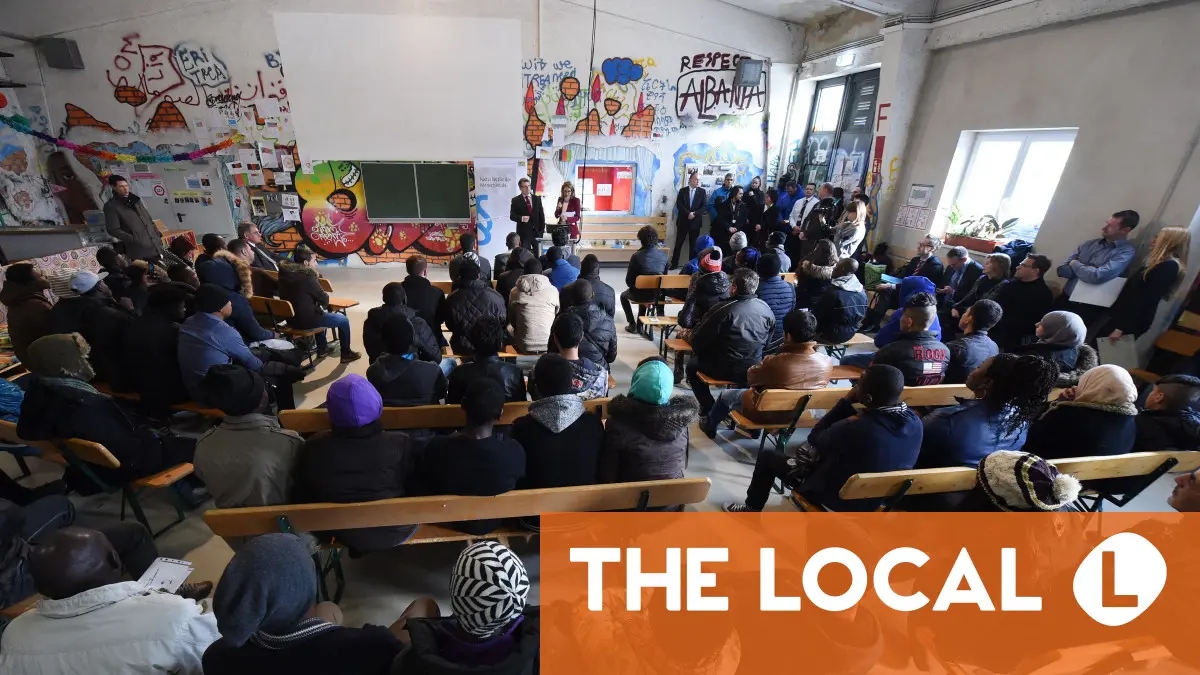RANKED: Which countries in Europe are better at integrating immigrants?

Even as governments across Europe toughen immigration policies some states are better than others when it comes to integrating new arrivals, according to a new study.
Despite toughening immigration rules, Sweden is the country in the EU with the strongest integration policies, according to a study by the Migration Policy Group, a think tank based in Brussels.
The Migration Policy Group has established the Migrant Integration Policy Index (MIPEX) to evaluate how countries support integration. The index considers eight policy areas affecting third-country nationals: access to the labour market, education, healthcare, permanent residence, family reunions, political participation, citizenship, as well as anti-discrimination law. Each area covers several indicators.
“At its core, integration is grounded in the principle of equal opportunities for all... In this context, equal access to rights and services with minimal barriers is considered a fundamental tenet of integration and is reflected in higher MIPEX scores,” the latest report says.
‘As many obstacles as opportunities’
The index shows that in the EU integration policy as a whole has stagnated in recent years. It was given a score of 54 out of 100, just a 0.8-point increase compared to 2019.
“That means, on average, countries’ policies are creating as many obstacles as opportunities for immigrants to participate and settle in their new home country,” the report says.
“Across the EU, migrants often enjoy basic rights and some long-term security but not equal opportunities,” says report co-author Başak Yavçan, Head of Research at the Migration Policy Group.
“The data show incremental gains in education and anti-discrimination, but worrying backsliding on access to citizenship and political participation,” she added.
READ MORE: Which European countries have the toughest rules for gaining citizenship?
Sweden in the lead
Sweden (86), Finland (84) and Portugal (83) are the countries with the highest score overall, followed by Belgium, Spain, Luxembourg and Germany. Most EU countries fall into the ‘halfway favourable’ category, while Latvia (36), Lithuania (37), Bulgaria and Slovakia (39) are last in the ranking.
Central and Eastern European countries tend to have least favourable integration policies than Western Europe (an average score of 44 versus 63).
Sweden has an overall score of 86 out of 100, although the author admits that the analysis is based on 2023 data, before recent policy changes on permanent residence and citizenship.
The country scores particularly high on anti-discrimination law (100), education (93), access to the labour market (91) and permanent residence (90), while it gets lower marks on family reunifications (71).
“Sweden has since seen two proposals for stricter legislation on naturalisation and the labour market. For citizenship, the 2024 proposal requires applicants to demonstrate an honest way of life, financial self-sufficiency, and a longer minimum residence period. Full implementation is planned by June 2026, so this was not enacted neither at the time of the scoring nor at the time of writing the report and is still pending parliamentary approval,” Dr Yavçan said.
“The other change concerns work permit criteria. This would raise the required monthly salary to obtain a work permits from 80 to 100 per cent of the median rate, but there are also positive changes as regards blue cards,” she said. Despite the recent backsliding, several policies in Sweden remain on the upper end of the index, the report shows.
Anti-discrimination law
With a total score of 64, Spain features high on anti-discrimination law (100), access to healthcare and permanent residence (75), while access to citizenship (30) remains weak.
“In Spain there is a very good anti-discrimination law from 2022 that covers education, social protection and strong equality bodies.
"There's a school curriculum that reflects diversity, but also in the labour market policies, all immigrants, not only EU migrants, have equal access to employment, self-employment, general employment support and social security.
"There is also a new law that creates a legal pathway to arrive and seek employment. People may arrive for vocational education, for a master’s or as part of a lifelong learning programme and upon finishing these courses are given a period to look for a job. Spain also uses these programmes to regularise irregular migrants,” Dr Yavçan noted.
Germany scores 61 in the index, featuring highest on access to the labour market (81), anti-discrimination policy (70) and the recently improved access to citizenship (67), but less favourably on family reunions (42).
Italy (58) performs best on access to healthcare (79), anti-discrimination law (78), permanent residence and access to the labour market (67), while the score is very low on political participation (25).
France (56) also scores highest on anti-discrimination (79) and access to citizenship (70) while it has less favourable policies on family reunification, education (43) and political participation (45).
Denmark and Austria score below 50 (49 and 47 respectively). In Denmark, family reunion (25) and permanent residence policies (42) are very restrictive and both received the lowest mark of all EU countries. Compared to other EU member states, Denmark also ranks low on citizenship (41) and anti-discrimination policies (51), while it performs better on access to the labour market (65).
“In Austria, what is pulling the score down is access to nationality (13), as it is really difficult to naturalise as a third country national,” Dr Yavçan says. In this area, Austria ranks second last among all EU countries.
Other weak areas for integration are political participation (20) and family reunion (36), but “one area where Austria is doing considerably better is healthcare (81), followed by education and not too bad labour market mobility policies,” she said.
Political participation the weakest area
By policy type, countries tend to have favourable measures in place on anti-discrimination (with an overall score of 78), permanent residence (61), and access to the labour market (55), while the weakest areas are education (50), access to citizenship (44), and especially political participation, which involves voting and candidacy rights (37).
According to the report, the slight progress in the past years has been driven primarily by advancements in education, labour market and anti-discrimination policies, while the situation has worsened on citizenship, permanent residence, and political participation.
Non-EU nationals can stand as candidates and vote in local elections in six EU countries (Denmark, Finland, Ireland, Luxembourg, Netherlands and Sweden), they can vote under major restrictions (e.g. after five years of residence, via special registration procedures or only in certain municipalities) in nine EU countries, and can join political parties with no restrictions 17 EU countries.
Please sign up or log in to continue reading
thelocal




